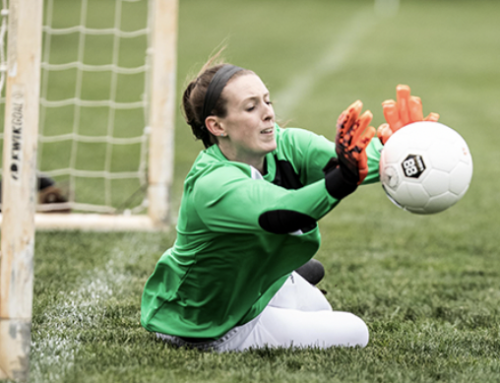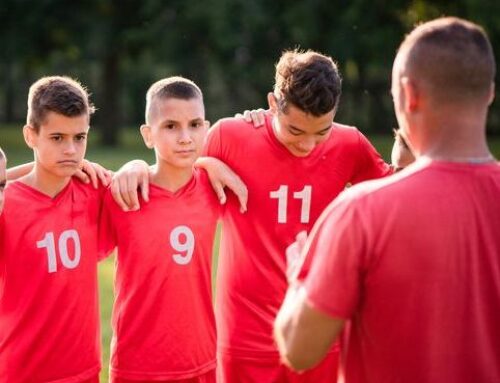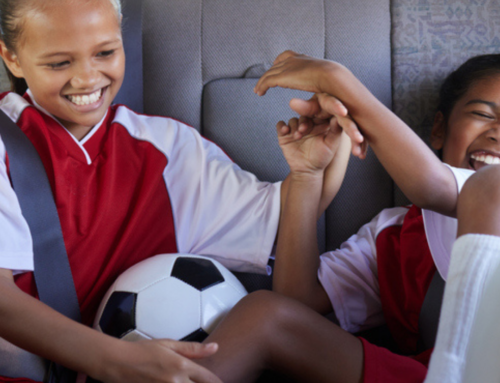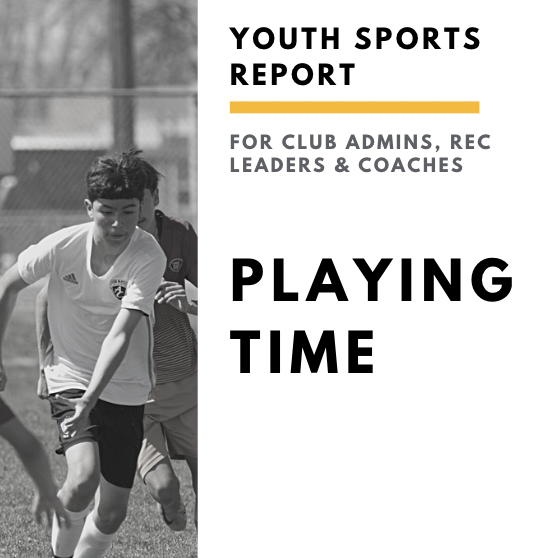Get our exclusive report. Download the iSport360 Club Switching Report Here – For Club Admins, Rec Leaders and Coaches.
Tips on Incorporating Mindfulness in Youth Sports
In our fast-paced, technology-driven world, the benefits of mindfulness are gaining recognition not only for adults but also for children. As parents, educators, and caregivers, it’s essential to explore how introducing mindfulness practices to kids can positively impact their mental well-being, emotional regulation, and overall development.
Being a youth athlete is tough and sometimes stressful, incorporating mindfulness into your routine can help make sports less stressful.
Mindfulness is the practice of bringing one’s attention to the present moment without judgment. For athletes, this means cultivating an awareness of their thoughts, emotions, and surroundings in a way that promotes focus, emotional regulation, and self-compassion. That sounds like a lot, but it can be really simple.
Mindfulness doesn’t require any special equipment or setting; it’s a simple yet powerful practice that can be seamlessly integrated into a child’s daily routine. As a coach, we recommend an easy way to incorporate mindfulness into practice. Use the sandwich method of managing feedback. Get your players to understand what they did well and what they need to improve on. This way they have to think through what happened and leverage both good and bad as a way to grow.
What are the Benefits?
Here are some of the benefits of mindfulness. While we explore the benefits for athletes, these benefits expand beyond an athlete and can be good for coaches too.
Mindful Emotional Regulation
Mindfulness equips athletes with tools to navigate their emotions. We have all had those athletes that get stressed and angry about the outcome of a play, practice or game. By encouraging them to observe and acknowledge their feelings without judgment, mindfulness fosters emotional intelligence, helping kids understand and manage their emotions in a healthy way.
Improved Concentration and Focus
The ability to concentrate is a valuable skill for academic success and overall well-being. Mindfulness practices, such as focused breathing or guided meditation, help children develop their attention muscles, leading to improved concentration both in and out of the classroom.
Stress Reduction
Just like adults, children experience stress. Mindfulness provides kids with coping mechanisms to deal with stress and anxiety. Simple practices, like mindful breathing, can activate the body’s relaxation response, reducing stress, and promoting a sense of calm.
Enhanced Cognitive Skills
Studies have shown that it can positively impact cognitive functions such as memory, problem-solving, and decision-making. By promoting a state of focused awareness, mindfulness helps children develop cognitive skills that are crucial for learning and development.
Better Sleep Quality
Sleep is vital for an athlete’s growth and development. Mindfulness practices, particularly those designed to relax the body and calm the mind, can contribute to improved sleep quality. This, in turn, positively influences mood, behavior, and overall well-being.
How do you model mindfulness?
Children often learn by example. Modeling mindfulness in your own life, whether through your own practices or verbalizing your mindfulness efforts, can inspire and encourage kids to adopt similar approaches.
Making it Fun
Incorporate creativity and playfulness into mindfulness activities. Use games, stories, or visual aids to make mindfulness engaging and enjoyable for children. This helps remove any perception that mindfulness is a chore and instead presents it as a positive and exciting endeavor.
Consistency is Key
Like any skill, mindfulness improves with practice. Consistency is crucial to seeing the long-term benefits. Establishing a routine, whether it’s a short session before bedtime or a few minutes of mindful breathing in the morning, helps make mindfulness a habit. After a youth sporting event, get your athlete to write down what they did well and what they want to work on at the next practice session. We tend to focus on the negatives instead of focusing on both positives and negatives.
Tailoring Practices to Individual Needs
Recognize that each child is unique, and what works for one may not work for another. Be open to exploring different practices and adapting them to suit the preferences and needs of individual children.
By integrating this into their lives, whether through breathing exercises, mindful movement, or other creative activities, we empower children to navigate the complexities of their emotions, develop essential life skills, and lay the foundation for a lifetime of well-being. As caregivers and educators, let’s embrace the potential of mindfulness to nurture resilient, focused, and emotionally intelligent young minds.
iSport360 is the only app that does it all for youth sports. For more information on what we do, click here.
About the author:
Amy Masters is a sports mom, coach, and club administrator. She has been coaching youth sports for more than 10 years. She started Jr Lions Field Hockey, the youth recreation program for the Hunterdon County community growing it from 40 players in year 1 to 150 players by year 3. A few years later, she saw the love and competitiveness grow then started Omega Field Hockey Club serving NJ and PA players. Prior to coaching, she was a collegiate field hockey player for Lock Haven University. In her spare time (lol), she is head of marketing for iSport360, where she brings her love of sports to a bigger audience.
Learn more or request a demo of our youth sports software that is helping teams improve communication, organization and player development.
December 29, 2023






